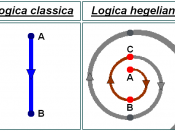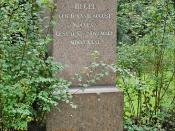Introduction: -
That history contains errors will not come as news to a person who has reflected on the topic. The very first history, a Greek one, History of Herodotus, written around 450 BC, likely had quite a number of fictional details so as to affect its purpose.1 Those parts of our history, which are suspected to be fiction, are, at least, through research and comparison, salvageable. What, however, is possibly more disturbing than the realization that, in general and throughout, our history is wrong (a sub-topic which I shall treat to a greater extent further on, herein) is the realization that there are great gaps in it. We have failed to record and gather together the little human events which make up the fabric of history: it is little events, strung together and accumulated over time, which account for our place in history.
Though it may have been, in certain of its parts, reconstructed incorrectly and small shards are missing here and there, history, by a well-read and descriptive author, like a Grecian urn, is a spectacle to behold; like man himself -- fascinating, seductive, intriguing, and spectacular.
It maybe, that I, like most, enjoy looking in on, at a safe distance, the follies and misfortunes2 of his fellow man, a method to gratify the natural curiosity that most of us have about such things. History, written in a lively and descriptive manner as the best are, so to grip and hold the reader, have, veiled and concealed as it might be, a lesson or moral such that the reader might modify his view of the present and his forecast of the future. This, incidentally, is the principal reason that history ought to be at the core of any scheme of education. In this light, as John Morley...



Good Job On your essay! :)
Keep it up!!!
:) good work
4 out of 5 people found this comment useful.